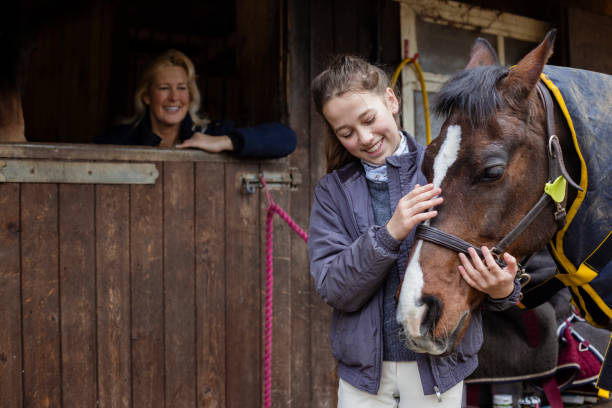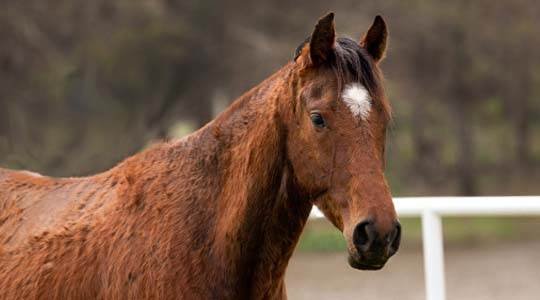As horses age, their health needs evolve, requiring more attention and specialized care. One of the critical aspects of maintaining the health and well-being of senior horses is ensuring they receive the appropriate vaccinations. Understanding the importance of vaccines for older horses is pivotal for any equestrian enthusiast or horse owner who wants to provide the best possible care for their beloved equine companions.
With the increased susceptibility to diseases, vaccines play a vital role in safeguarding older horses from various health challenges. This comprehensive guide will delve into the significance of vaccines for older horses, addressing common concerns and providing actionable insights to help you make informed decisions for your senior equine’s health.

The Importance of Vaccines for Older Horses
Vaccines are essential for horses of all ages, but they are particularly crucial for older horses whose immune systems may not be as robust as they once were. Vaccinations help protect against infectious diseases that can lead to severe health complications or even be fatal.
Why Older Horses Need Vaccines
As horses age, their immune systems naturally weaken, making them more vulnerable to infections. Vaccines stimulate the immune system, helping it to recognize and fight off diseases more effectively. This is particularly important for older horses, as their bodies may not respond as quickly or as efficiently to infections.
Common Diseases Prevented by Vaccines
There are several infectious diseases that vaccines can help prevent in older horses, including:
- Equine Influenza: A highly contagious respiratory disease that can spread rapidly among horses.
- West Nile Virus: A mosquito-borne disease that can cause neurological issues in horses.
- Tetanus: A bacterial infection that can enter the body through wounds and cause muscle stiffness and spasms.
- Rabies: A viral disease that affects the nervous system and is almost always fatal once symptoms appear.
Vaccination Schedule for Older Horses
Determining the right vaccination schedule for your older horse involves considering factors such as their health status, lifestyle, and exposure risk. Consulting with a veterinarian is crucial for creating a tailored vaccination plan.
Annual Core Vaccines
Core vaccines are those that protect against diseases that are widespread and severe. For older horses, these typically include:
- Tetanus
- Eastern/Western Equine Encephalomyelitis
- West Nile Virus
- Rabies
These vaccines are generally administered annually, but your veterinarian may adjust the schedule based on your horse’s specific needs.
Risk-Based Vaccines
In addition to core vaccines, there are risk-based vaccines that may be recommended depending on your horse’s exposure risk. These include vaccines for:
- Equine Herpesvirus (EHV)
- Equine Influenza
- Potomac Horse Fever
Your veterinarian will assess your horse’s environment and lifestyle to determine which of these vaccines are necessary.
Monitoring and Adjusting the Vaccination Plan
Regularly monitoring your horse’s health and adjusting their vaccination plan is essential to ensure ongoing protection. Factors such as changes in health status, travel plans, or new disease outbreaks may necessitate updates to the vaccination schedule.
Signs of Adverse Reactions
While vaccines are generally safe, it is essential to be aware of potential adverse reactions. Common signs include swelling at the injection site, lethargy, or mild fever. If your horse experiences severe reactions, such as difficulty breathing or collapse, immediate veterinary attention is required.
Communicating with Your Veterinarian
Maintaining open communication with your veterinarian is crucial for the health of your older horse. Regular check-ups and discussions about vaccination plans ensure that your horse receives the best possible care. For more information on caring for older horses, consider visiting digestive support and hydration tips.
Additional Health Considerations for Older Horses
In addition to vaccinations, there are other health considerations to keep in mind for older horses. Proper nutrition, regular exercise, and routine health checks are vital components of overall care.
Nutrition and Supplements
As horses age, their nutritional needs change. Ensuring a balanced diet with appropriate supplements can support their health and well-being. Consider exploring supplements specifically designed for aging horses.
Managing Chronic Conditions
Older horses may develop chronic conditions such as Cushing’s disease or arthritis. Regular monitoring and treatment plans can help manage these conditions and improve the quality of life for your horse. For more information on Cushing’s disease, visit Cushing’s disease.
Conclusion
Vaccines are a vital component of maintaining the health and longevity of older horses. By understanding the importance of vaccinations, working closely with a veterinarian, and addressing additional health needs, you can ensure that your senior equine companion enjoys a healthy and fulfilling life. For further guidance on caring for older horses, visit this resource from the American Association of Equine Practitioners.

FAQ Section
What vaccines are necessary for older horses?
Core vaccines like Tetanus, Eastern/Western Equine Encephalomyelitis, West Nile Virus, and Rabies are necessary. Risk-based vaccines depend on your horse’s exposure risk.
How often should older horses be vaccinated?
Core vaccines are typically administered annually, but the schedule may vary based on the horse’s specific needs and veterinarian recommendations.
Can older horses have adverse reactions to vaccines?
While vaccines are generally safe, older horses may experience mild reactions like swelling or lethargy. Severe reactions are rare but require immediate veterinary attention.
This article contains affiliate links. We may earn a commission at no extra cost to you.
